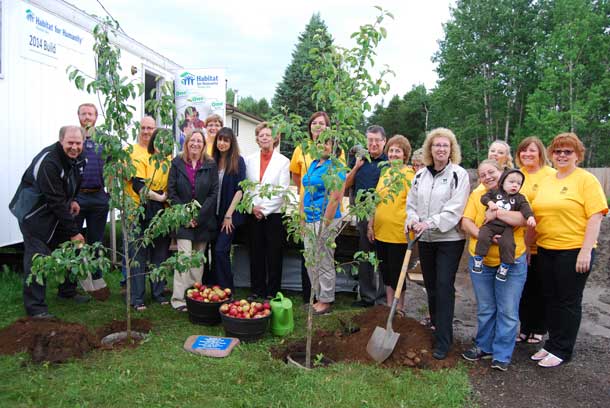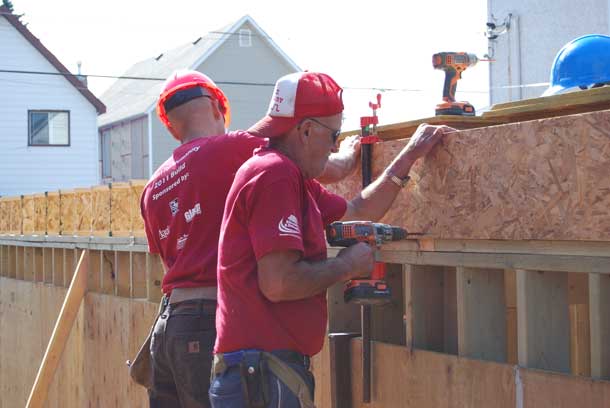
THUNDER BAY – Today, on the UN-designated World Habitat Day, Habitat for Humanity Canada is making significant strides in serving aboriginal families as Habitat for Humanity Lloydminster signs a memorandum of understanding with Flying Dust First Nation at Meadow Lake in order to make affordable Habitat homeownership available on the Saskatchewan reserve. This milestone comes as the organization celebrates their 100th safe, decent and affordable home to be provided to an aboriginal family, currently under construction in Slave Lake, Alberta.
“As we celebrate our 100th family to be served under our Aboriginal Housing Program, we are also embarking on a milestone partnership with Flying Dust First Nation,” said Jayshree Thakar, Habitat for Humanity Canada’s Aboriginal Housing Program manager. “We are confident that this project will lead to many other partnerships across Canada that will enable Habitat for Humanity to meaningfully address housing need in aboriginal communities.”
Since inception of Habitat for Humanity Canada’s Aboriginal Housing Program in 2007, aboriginal families living in rural and urban areas have been the primary recipients of safe, decent and affordable Habitat homes. But since signing an agreement with the Assembly of First Nations in 2011, Habitat for Humanity has also been working with First Nation communities to find ways to serve families living on settlements and reserves while respecting the unique land regime challenges associated with traditional territories.
“As a charitable organization providing affordable homeownership solutions to low-income families, we knew that we needed to reach this population as well to truly tackle affordable housing need nationwide,” added Thakar.
In Slave Lake, steady progress is being made by Habitat for Humanity Edmonton on the Bigstone family’s detached home, the 100th home to be completed under Habitat’s Aboriginal Housing Program. The family of six lost their home and belongings when the 2011 wildfire that ravaged the town and caused $700 million in damage destroyed the home they had been renting.
“Our community has gone through a lot and it’s been very moving to see people come together to help wherever they can,” said Lisa Bigstone. “Right now we’re living in temporary housing and we can’t wait to see the look on our kids’ faces when we receive the keys to our Habitat home.”
“The community of Slave Lake has captured the hearts of Canadians across the country and we are privileged to help in the rebuilding process,” said Alfred Nikolai, president & CEO of Habitat for Humanity Edmonton.
Habitat for Humanity Canada’s Aboriginal Housing Program is made possible by founding partner Canada Mortgage and Housing Corporation and supporters Enbridge, RBC Foundation and Tachane Foundation. If you would like to support Habitat for Humanity Canada’s Aboriginal Housing Program, please visit www.habitat.ca/ahp.
– See more at: http://www.habitat.ca/hfhcnewsp4237.php?ID=190&command=viewArticle¤tFeed=1#sthash.idAyQxsJ.ApHzGwGA.dpuf




